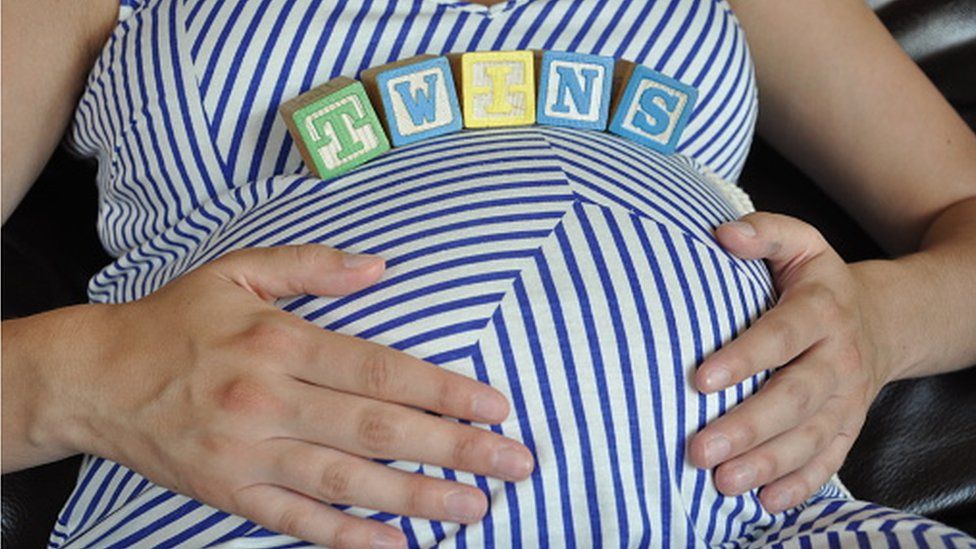Multiple-birth care 'very patchy' in England
- Published

Women expecting twins or triplets are experiencing poor antenatal care in some areas of England, a report from the Twins and Multiple Births Association and the NCT suggests.
A survey of 1,400 parents suggested patients in the South East and West Midlands received the worst care, while those in the North East had the best.
NICE guidelines on antenatal care had not been implemented, the report said.
And, as a result, access to specialist care was limited in some areas.
The latest figures show stillbirth rates for multiple births rose by 13.6% between 2013 and 2014.
Multiple pregnancies make up 3% of all pregnancies in the UK.
They have a much higher neonatal death rate and a higher risk of poor health and disability after birth.
Specialist knowledge
The National Institute for Health and Care Excellence (NICE) introduced guidance for multiple pregnancies in 2011 and quality standards in 2013.
The guidelines say all women expecting multiple babies should have a named midwife, obstetrician and sonographer (who performs ultrasounds) with specialist knowledge of multiple pregnancies.
But the survey of patients' experiences indicated only 10-18% of UK units had implemented the NICE guidelines in full.
About one in three women surveyed said they did not see a named specialist obstetrician, while only 20% saw a specialist midwife and 28% saw a specialist sonographer.
Specialist teams are important during the antenatal period because this is often when things can go wrong in women expecting twins, triplets or more.
And there were wide variations of care across England. In the East Midlands, 7.8% of patients saw a specialist midwife compared with 48% in the North East.
Overall, patients who gave birth in the South East and West Midlands reported the worst standards of care for multiple pregnancies in England.
In comparison, Scotland performed well, with 85% of patients seen by a specialist obstetrician and 38% by a specialist midwife.
'Bleak picture'
Keith Reed, chief executive of the Twins and Multiple Births Association, said: "This report paints a bleak picture with shocking variations in the standard of multiple-pregnancy care across the country."
"The NHS England maternity review needs to address this issue as a matter of urgency to prevent babies' lives being put at risk."
An NHS England spokeswoman said the review would "assess how best we can respond to England's growing birth rate and the need for safe and flexible services which are tailored to the needs of women, babies and their families".
Louise Silverton, director for midwifery at the Royal College of Midwives, said the findings were "extremely worrying".
"It is crucial that we find out why this is happening and take steps to address it," she said.
"The fact that so few trusts are implementing the guidelines is also a real concern. The guidelines are there for a reason and trusts should be using them."
- Published13 November 2015